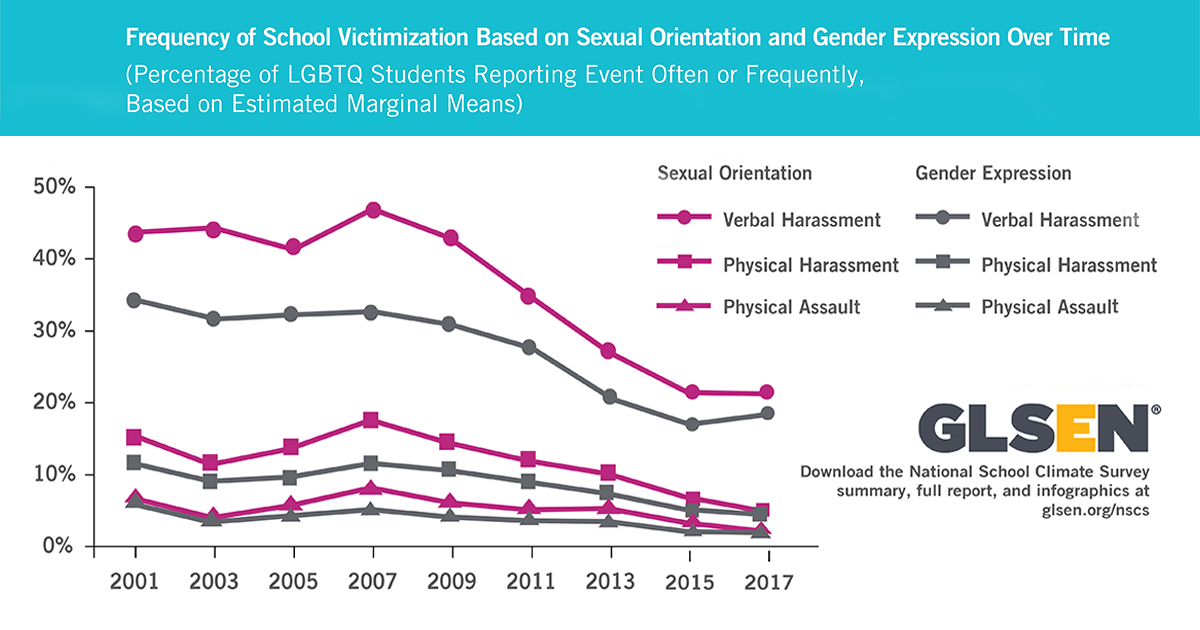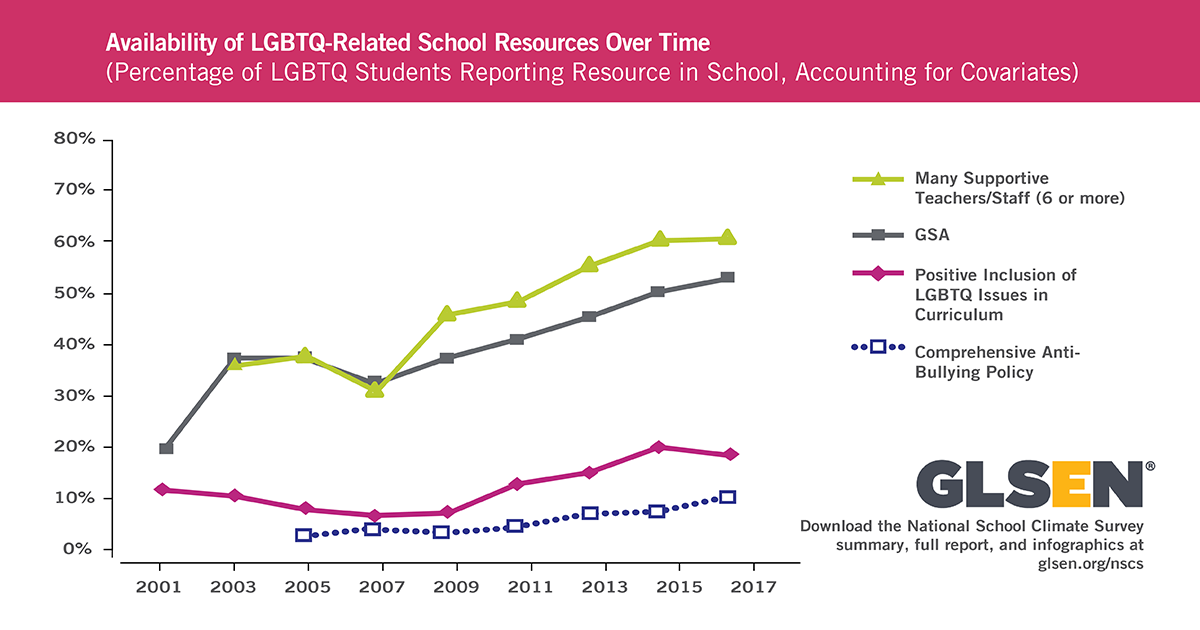The LGBTQ safe schools organization GLSEN published the results of its biennial National School Climate Study on Monday, showing that support for LGBTQ students isn’t growing like it used to. The study, conducted in 2017, found instead that schools have become less safe for transgender and gender nonconforming youth.
After surveying a sample of 23,000 students across the country, GLSEN found that many queer students still feel unsafe at school because of their identity. In fact, 34.8 percent of LGBTQ students said they had actually missed at least one day of school in the past month because they felt unsafe or uncomfortable.
Almost all students heard anti-LGBTQ remarks frequently at school, including three out of five students who frequently heard “dyke” or “faggot” or language policing gender expression (e.g. not acting “masculine enough” or “feminine enough”). An overwhelming majority of LGBTQ students, 87.3 percent, had experienced some kind of direct harassment or assault related to an aspect of their identity.
Discriminatory school policies or practices impacted 62.2 percent of LGBTQ students, including selectively disciplining public displays of affection (31.3 percent), prohibiting discussion of LGBTQ topics in assignments (18.2 percent), and blocking students from forming or promoting a GSA (gay-straight alliance; 14.8 percent).
This toxic climate had documented consequences. Students who experienced higher levels of victimization were more likely to miss school, had lower GPAs, were less likely to pursue post-secondary education, were far more likely to have been disciplined, and had lower self-esteem and higher levels of depression. Of the students who reported they were considering dropping out of school entirely, nearly half (42.2 percent) said it was because of harassment they faced at school.
The survey also showed little to no positive change compared to 2015, when the last GLSEN survey was conducted. Prior to 2015, the overall climate appeared to be gradually improving. These results from 2017 are the first to show that the progress appears to have plateaued.
Moreover, GLSEN noted, negative remarks about transgender people, including negative remarks from staff, have actually increased since 2013.

The survey also showed little change in terms of how many students encountered LGBTQ-inclusive curricular resources:

By the time these responses were collected last year, the Trump administration had already rescinded guidance that protected transgender students from discrimination. This year, the Department of Education also announced it would no longer hear complaints from transgender students who had experienced discrimination at school.
Groups like the Alliance Defending Freedom have also been pursuing a legal strategy across the country to challenge schools’ LGBTQ protections. There’s no shortage of cases in which ADF has argued respecting transgender students poses a threat to other students’ safety. The group has likewise spread these same talking points at the local level to try to convince parents to turn against the transgender students at their schools.
GLSEN Executive Director Eliza Byard called the report “an alarm bell for advocates and a call to action for anyone who cares about students’ well-being.” But she also noted the report continues to show how creating safe schools for LGBTQ students can have a positive impact.
“LGBTQ-affirming supports in our schools reduce violence, improve academic achievement, and help save lives,” she said. “Who wouldn’t want LGBTQ youth to feel safe and do better in schools?”
